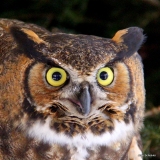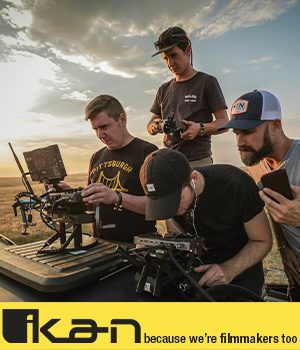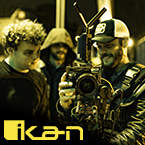- Forum
- General Discussion | Introductions | Off Topic Forum
- Photography General Discussion
- How to bracket a shot when you are shooting into extreme bright light?
How to bracket a shot when you are shooting into extreme bright light?
-
 Topic Author
Topic Author
- Pat White
- Lone Wolf
-
- Nikon D7500
- Followers: 70
- Posts: 202
-
Points:
3803
Post #693657
Help please.
-

- Nikon Shooter
- Oh Wise One
-
- 3S 3X 810 850
- Followers: 197
- Posts: 13795
-
Points:
88932
Post #693659
the better way to do it is to use the bracketing exposure
feature your rather recent camera has. See your manual,
it is quite simple.
Light is free… capturing it is not!
-

- garyrhook
- Oh Wise One
-
- Nikon D850, Nikon D750, Panasonic G7K
- Followers: 912
- Posts: 11103
-
Points:
67681
Post #693664
This problem is not "simple" to solve if one does not know how to approach it.
An ND won't help because it will treat the entire scene the same way. So what is already dark just gets darker.
You have (at least) two possible choices:
- Move, either yourself, the subject, or both, if possible.
- Either use a tripod or stay very still, and take two images. Expose one for the background, and expose the other for the subject. Combine in post. PS will allow you to align two images (layers), even if they're not identical, and composite them.
-

- Nikon Shooter
- Oh Wise One
-
- 3S 3X 810 850
- Followers: 197
- Posts: 13795
-
Points:
88932
Post #693665
Really? Come on, now, you can't be serious.
Done in camera offers more precision… and did you think
in all your wisdom that some may not have Ps or the skills?
To make it sound so difficult and suggest that your solution
is simple won't help anyone. It needs to be learned.
Hold your horses buddy and back off.
Light is free… capturing it is not!
-
 Topic Author
Topic Author
- Pat White
- Lone Wolf
-
- Nikon D7500
- Followers: 70
- Posts: 202
-
Points:
3803
-

- Nikon Shooter
- Oh Wise One
-
- 3S 3X 810 850
- Followers: 197
- Posts: 13795
-
Points:
88932
Post #693671
is select to have Nikon do it on board and it will process
the takes — two or more — into a jpg rendition.
One way or the other, there is some not so hard learning
to do. Have fun!
Light is free… capturing it is not!
-

- Ozzie_Traveller
- Apprentice
-
- Currently using a Panny FZ-300 and FZ-2500 with occasional use of a Panny mirrorless G-series
- Followers: 124
- Posts: 2713
-
Points:
54251
Post #693676
If it were me .... I would be using the JPG features in your camera to create an HDR image
You may need to look it up in your UserGuide or pop into the Menu options and see how to set HDR
In my cameras, I can select HDR, then also dial in a) how many images I want the camera to shoot in continuous mode, and b) how much variation I want between brightness and darkness of the scene
So for a scene similar to the one you describe, I might select HDR > 7 images > +3 EV thru normal down to -3EV for the brightness range. These 7 images, each shot with a 1EV variation between each image will then be combined in the camera to produce a single, hi-res JPG image ready for you to do with as you will
Hope this helps
Phil from the great land Downunder
www.flickr.com/photos/ozzie_traveller/sets/
-

- garyrhook
- Oh Wise One
-
- Nikon D850, Nikon D750, Panasonic G7K
- Followers: 912
- Posts: 11103
-
Points:
67681
Post #693683
Nikon Shooter wrote: "Oh Wise One"
Really? Come on, now, you can't be serious.
You do understand that those titles are generated by the PT forum based on points, right? And that we have zero control over them?
Therefore, despite the implication that I gave that to myself, you'd be incorrect. You don't like it, no one's forcing you to hang out here. Have you considered informing yourself with facts before casting aspersions?
Done in camera offers more precision… and did you think
in all your wisdom that some may not have Ps or the skills?
To make it sound so difficult and suggest that your solution
is simple won't help anyone. It needs to be learned.
Hold your horses buddy and back off.
I don't use in-camera HDR because on a Nikon it requires shooting in JPG, even on a D850. Thus, I don't suggest it due to the compromises that I believe would have to be made. I made a suggestion based on what seemed suitable to the situation as it appeared to be described by the OP.
I never said compositing was simple, or complex, or anything in between. I said that dismissing something that one already understands as simple is insulting which is what you did in your post. And I implied that I have done the same myself in the past. And have regretted it. And learned from it. Which is more than most folks are capable of. If one is not clear on the subtleties of the language, perhaps one should refrain from commenting?
If creating a JPG in camera meets the needs, so much the better. As I stated in my post above, other suggestions would be made. Which you did not do in your first post when you mentioned bracketing (which has nothing to do with the HDR feature... it's just a way to capture images). I am not responsible for incomplete thoughts posted by others.
Newsflash, "buddy": anyone can post any idiotic thing they want to here, as long as it doesn't violate the rules of the forum, and that includes bad advice, arrogant comments, or spamming the photo forums with dull photos. Because, apparently, none of that will get you evicted.
The main difference between me and most other people is that I already know I'm an ass. It's unfortunate when others are unable to find some perspective.
-

- Baydream
- Moderator
-
- Canoni/60D/70D/5DmkIII
- Followers: 388
- Posts: 11185
-
Points:
7278
Post #693707
Shoot, learn and share. It will make you a better photographer.
fineartamerica.com/profiles/john-g-schickler.html?tab=artwork
-

- Shadowfixer1
- Photo Elder
-
- Olympus OMD E-M1 MKII
- Followers: 1350
- Posts: 5554
-
Points:
73359
Post #693708
-

- Nikon Shooter
- Oh Wise One
-
- 3S 3X 810 850
- Followers: 197
- Posts: 13795
-
Points:
88932
Post #693712
Shadowfixer1 wrote: I have generally found the HDR in camera to be pretty weak
Light is free… capturing it is not!
-

- Nikon Shooter
- Oh Wise One
-
- 3S 3X 810 850
- Followers: 197
- Posts: 13795
-
Points:
88932
Post #693713
I use AF too!Baydream wrote: I honestly do not use any in-camera processing. I use Affinity Photo (a $50 one time purchase) to merge the photos. It is automatic but allows you to make adjustments to each layer.
To a beginner not having an edition software not the skills toShadowfixer1 wrote: I have generally found the HDR in camera to be pretty weak
use it, the quickest way is through the camera's HDR.
Learning and biding time!
Light is free… capturing it is not!
-

- Shadowfixer1
- Photo Elder
-
- Olympus OMD E-M1 MKII
- Followers: 1350
- Posts: 5554
-
Points:
73359
Post #693715
Except the in camera HDR won't even come close to handling the situation described. Sure, they can try it but I can almost guarantee the results will not be acceptable. If the range is fairly close, maybe. I've never seen a result from it worth two hoots.Nikon Shooter wrote:
I use AF too!Baydream wrote: I honestly do not use any in-camera processing. I use Affinity Photo (a $50 one time purchase) to merge the photos. It is automatic but allows you to make adjustments to each layer.
To a beginner not having an edition software not the skills toShadowfixer1 wrote: I have generally found the HDR in camera to be pretty weak
use it, the quickest way is through the camera's HDR.
Learning and biding time!
-

- Nikon Shooter
- Oh Wise One
-
- 3S 3X 810 850
- Followers: 197
- Posts: 13795
-
Points:
88932
Post #693725
Shadowfixer1 wrote: Except the in camera HDR won't even come close…
Can't anyone remember when they were beginning?
Pat looks capable to learn and I trust he will come to
his own conclusions.
Light is free… capturing it is not!
-

- Shadowfixer1
- Photo Elder
-
- Olympus OMD E-M1 MKII
- Followers: 1350
- Posts: 5554
-
Points:
73359
Post #693736
I'm not sure what that has to do with the price of rice in China. What I'm saying is in camera HDR isn't very effective. I have made no statements about anyone's experience or capabilities. I don't care if a person has just picked up a camera or they have been shooting for 40 years, in camera HDR is fairly meaningless, in my opinion. If someone can prove me wrong on that statement, I will consider myself educated and no longer ignorant when it comes to in camera HDR.Nikon Shooter wrote:
Shadowfixer1 wrote: Except the in camera HDR won't even come close…
Can't anyone remember when they were beginning?
Pat looks capable to learn and I trust he will come to
his own conclusions.
- Forum
- General Discussion | Introductions | Off Topic Forum
- Photography General Discussion
- How to bracket a shot when you are shooting into extreme bright light?
Latest Reviews
The Canon EOS R100 is an entry-level mirrorless camera introduced in 2023. But just because it’s an entry-level camera doesn’t mean it’s a bare-bones camera. Find out why in this review!
Nikon’s retro-looking Nikon Zfc is anything but retro. Under its classic body is a host of features and amenities that make it a worthwhile compact mirrorless camera for 2024.
The Canon EOS R50 is one of the newest R-system cameras from Canon. Is it worth your money? Find out all the details you need to know in this comprehensive review.
The Sony FE 70-200mm f/2.8 GM OSS II is Sony’s flagship mirrorless zoom lens. As such, it’s loaded with features and has a top-shelf build quality that makes it a top pick!
Forum Top Posters
-
1Scotty 5 posts
-
2Foggy 4 posts
-
3TCav 4 posts
-
4No Show 3 posts
-
5CaptNemo 2 posts
-
6Roger Lang 2 posts
-
7Otto F 2 posts
-
8Fitch 2 posts
-
9Kenta 2 posts
-
10Pork Express 2 posts
Latest Articles
The Insta360 has one of the best lineups of action cams and 360-degree cameras. With these Insta360 accessories, you can elevate your photography and videography game!
Creating impactful photos of landscapes depends on many factors, not the least of which is your talent behind the lens. This guide explores other elements required for the best product.
The Canon EOS R100 is an entry-level mirrorless camera introduced in 2023. But just because it’s an entry-level camera doesn’t mean it’s a bare-bones camera. Find out why in this review!
Are you ready to upgrade your camera? Before buying new, you might consider the value of purchasing used gear to save money.
The Olympus OM-D E-M10 Mark IV is a micro four thirds camera released in 2020. It’s an entry-level system along with the OM-D E-M5 Mark III. Use this guide to determine which one is best for you!
Blue hour photography might not be as well known as golden hour photography, but it is every bit as good a time to create epic images of landscapes. Learn how in this quick tutorial!
Nikon’s retro-looking Nikon Zfc is anything but retro. Under its classic body is a host of features and amenities that make it a worthwhile compact mirrorless camera for 2024.
Moving from taking snapshots of your dog to creating beautiful images doesn’t have to be that difficult! Use the tips outlined in this dog photography guide, and you’ll get better results in no time.
















